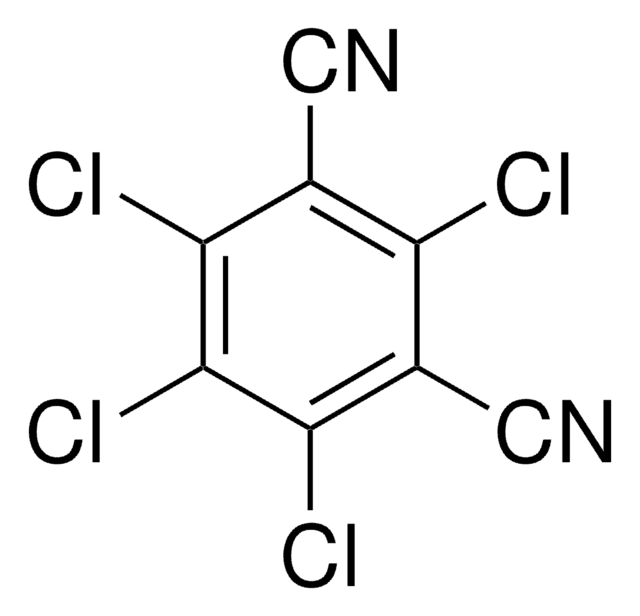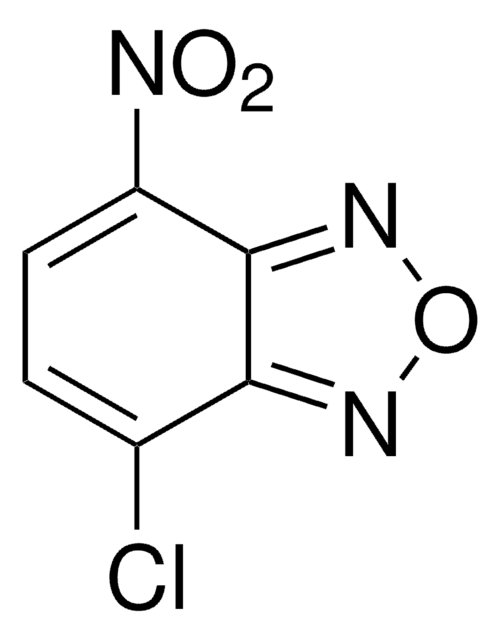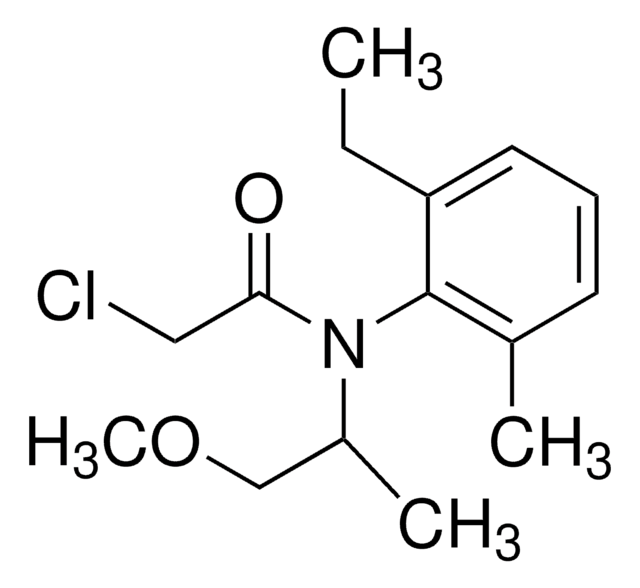32061
Trifluralin
PESTANAL®, analytical standard
Synonym(s):
2,6-Dinitro-N,N-dipropyl-4-trifluoromethylaniline
About This Item
Recommended Products
grade
analytical standard
Quality Level
product line
PESTANAL®
shelf life
limited shelf life, expiry date on the label
technique(s)
HPLC: suitable
gas chromatography (GC): suitable
application(s)
agriculture
environmental
format
neat
SMILES string
CCCN(CCC)c1c(cc(cc1[N+]([O-])=O)C(F)(F)F)[N+]([O-])=O
InChI
1S/C13H16F3N3O4/c1-3-5-17(6-4-2)12-10(18(20)21)7-9(13(14,15)16)8-11(12)19(22)23/h7-8H,3-6H2,1-2H3
InChI key
ZSDSQXJSNMTJDA-UHFFFAOYSA-N
Looking for similar products? Visit Product Comparison Guide
Related Categories
General description
Application
ionization (GC-MS-NCI) technique for qualitative and quantitative analysis of trifluralin from soil extract samples.[3]
Legal Information
signalword
Warning
hcodes
Hazard Classifications
Acute Tox. 4 Oral - Aquatic Acute 1 - Aquatic Chronic 1 - Carc. 2 - Skin Sens. 1
Storage Class
11 - Combustible Solids
wgk_germany
WGK 2
flash_point_f
212.0 °F - closed cup
flash_point_c
100.00 °C - closed cup
ppe
dust mask type N95 (US), Eyeshields, Faceshields, Gloves
Choose from one of the most recent versions:
Certificates of Analysis (COA)
Don't see the Right Version?
If you require a particular version, you can look up a specific certificate by the Lot or Batch number.
Already Own This Product?
Find documentation for the products that you have recently purchased in the Document Library.
Customers Also Viewed
Articles
Pesticide analysis, SPME Fiber, supelco spme fiber, direct immersion spme, pesticide analysis methods, pesticide analysis by gc-ms, DI-SPME, overcoated SPME, overcoated fibers, soy milk analysis
Our team of scientists has experience in all areas of research including Life Science, Material Science, Chemical Synthesis, Chromatography, Analytical and many others.
Contact Technical Service














